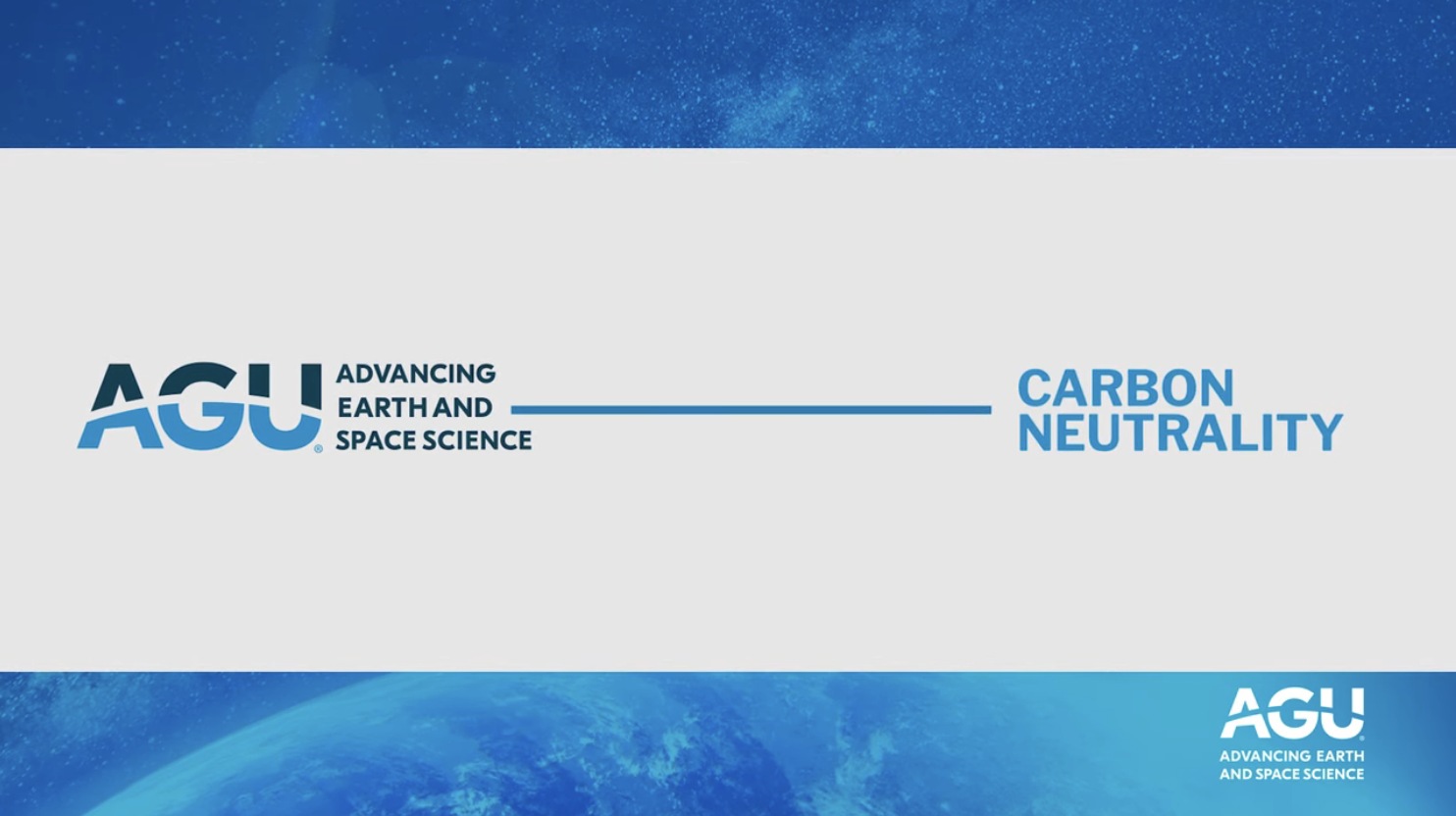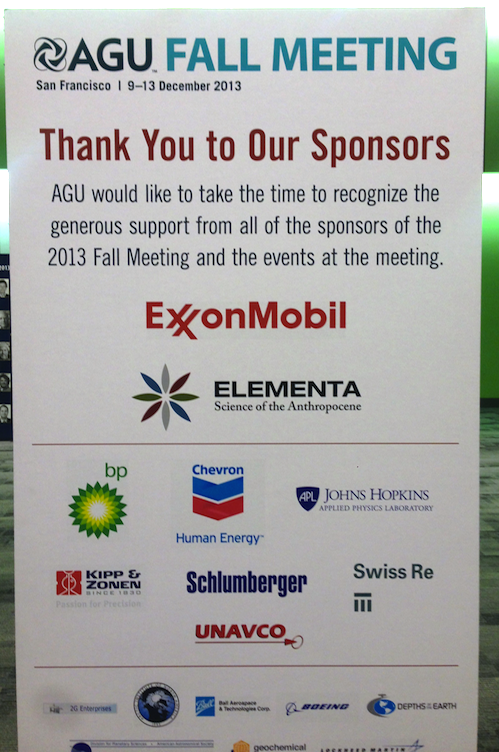 After years of protests from its climate-scientist members for its ties
to climate polluters, the American Geophysical Union quietly divested
its $100-million-plus investment portfolio from the fossil-fuel
industry. In November 2021, AGU leadership
posted a video labeled only “AGU announces
change in its investment
strategy.”
In the video,
AGU president Susan Lozier announced the
implications of its newly adopted ESG
investment policy:
After years of protests from its climate-scientist members for its ties
to climate polluters, the American Geophysical Union quietly divested
its $100-million-plus investment portfolio from the fossil-fuel
industry. In November 2021, AGU leadership
posted a video labeled only “AGU announces
change in its investment
strategy.”
In the video,
AGU president Susan Lozier announced the
implications of its newly adopted ESG
investment policy:
Also as a result of this policy, AGU has no direct investments in fossil fuels. However, a recent audit of AGU’s portfolio showed that approximately five percent of our holdings are invested in fossil fuels through our mutual fund accounts. Today’s announcement is to let you know that AGU has started to divest its portfolio of these holdings to strengthen our commitment to mission-related investments and to better align with our strategic plan, which places a strong focus on a sustainable future.
In the video, AGU president-elect Susan Gramlich explained the decision was a result of the “unprecedented climate emergency” which makes this an “all-hands-on-deck moment for our scientific community,” while recognizing that AGU members include employees of fossil-fuel companies.
As Susan mentioned, AGU’s Board’s decision was focused on making sure our actions match our strategic plan, who we are as an organization and our investment policy. Core to all three is that we must address our global climate crisis. The world is facing an unprecedented climate emergency where every decision – and inaction – affects all who inhabit our planet. This is an all-hands-on-deck moment for our scientific community as we are called upon to continue to build our capacity to anticipate the impacts of climate change and work with others to ground policy and practices in our science. As we continue to pursue our science, we are also engaging with an ever broadening array of fields of expertise from scientific to social to political. We aspire to deepen our collaboration with the private sector, especially those companies that are committed to truly doing better for future generations by advancing science-based solutions. . . Our members also work in and for a variety of organizations, including non-profits, academia, scientific organizations, government programs and corporations, including fossil-fuel companies.
AGU past president Robin Bell, a cryosphere geophysicist, discussed the AGU Finance and Investment Committee’s plan for “net carbon neutrality” with AGU investments, which opens the door for further investment in the fossil-fuel industry.
The current landscape is very dynamic and as Earth scientists, we understand that the fossil fuel companies have the potential to become truly renewable energy companies driving carbon sequestration and direct air capture. Carbon Capture and sequestration will be essential to meet the Paris Agreement goals. We know developing robust metrics for a carbon neutral portfolio will not be simple given the complexities of the carbon cycle. We will build on the evolving understanding of carbon in the Earth system that our membership brings to this discussion. We are grateful for the work of our scientists and will be looking to our community to help us hone our strategies.
At that time AGU adopted a new investment policy with the vague language:
Based on a desire to align the Long-Term investments with the mission of the organization, AGU will emphasize Mission Related Investments (“MRI”) that include the following characteristics: Environmental, Social and Governance (“ESG”) integration, thematic investments, transparency and women and minority owned or managed investments.
In a June 2022 communication with Scientists for Global Responsibility, executive director Randy Fiser confirmed:
To better align with our new strategic plan, which places a strong focus on a sustainable future, and to strengthen our commitment to mission-related investments, the AGU Board of Directors voted to entirely divest AGU’s portfolio of fossil fuels, starting October 2021. We recently announced this decision in a From the Prow post.
The post to which Fiser refers is the one having only the vaguely named video.
It remains unclear whether AGU has any policy or standard against accepting funding and sponsorships from fossil-fuel companies, the subject of massive protest from members in 2016. At the time, the board rejected member calls to sever its long-standing financial and promotional relationship with ExxonMobil. Although Exxon chose not to continue its sponsorship of the Fall Meeting student breakfasts, Chevron continued as a sponsor of Fall Meetings through 2019. No fossil-fuel companies were public sponsors for the 2020, 2021, or 2022 meetings.
At the 2022 fall meeting in December, AGU expelled climate scientists Rose Abramoff and Peter Kalmus for interrupting a plenary session with a call for their fellow AGU members to engage in more climate activism. AGU staff complained to Abramoff’s employer, Oak Ridge National Laboratory, leading to her firing in January 2023.
 The annual conference of
the American Geophysical Union (AGU), the top meeting of the world’s
climate science community, enjoys the “generous support” of the world’s
largest greenhouse polluters, including ExxonMobil, Chevron, and BP. The
The annual conference of
the American Geophysical Union (AGU), the top meeting of the world’s
climate science community, enjoys the “generous support” of the world’s
largest greenhouse polluters, including ExxonMobil, Chevron, and BP. The